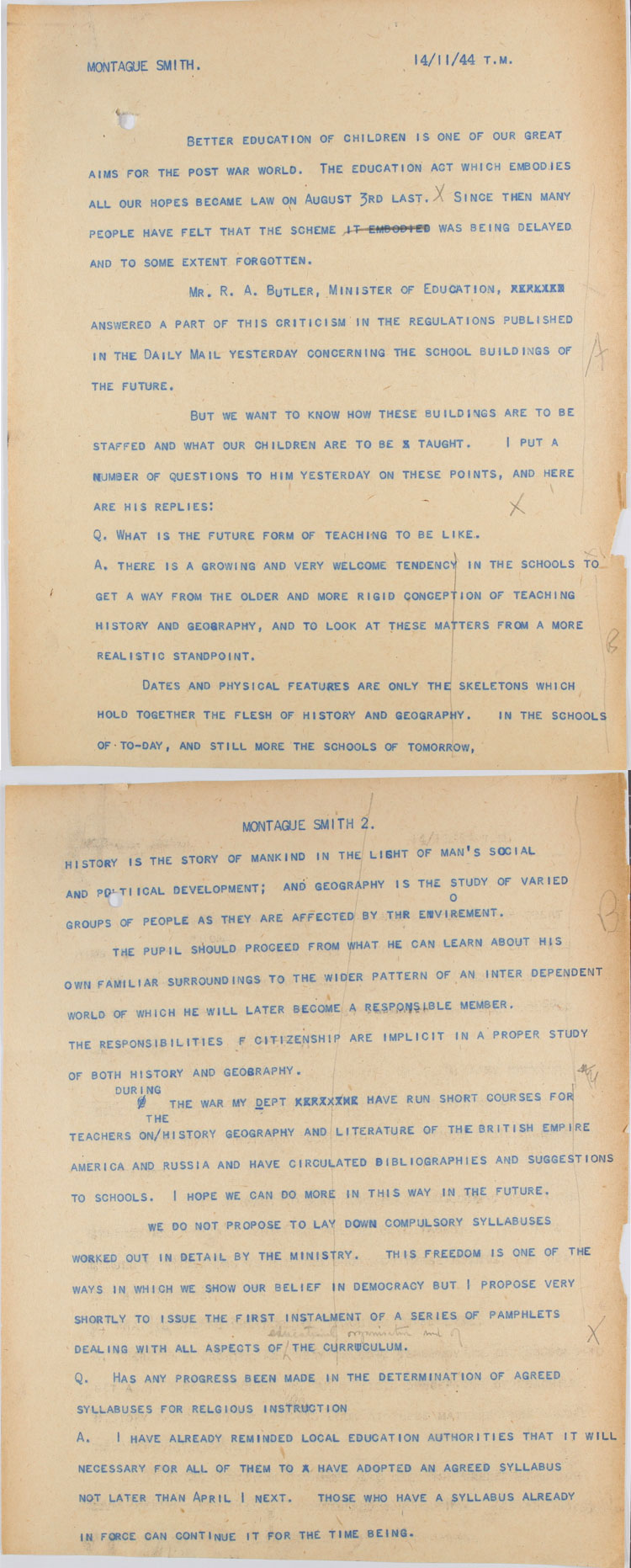
Extract from a transcript for an interview with RAB Butler and Richard Montague Smith, a reporter from The Daily Mail, 14 November 1944 (ED 121/202)
Montague Smith
14/11/44 T.M
Better education of children is one of our great aims for the post war world. The Education Act which embodies all our hopes became law on August 3rd last. Since then many people have felt that the scheme was being delayed and to some extent forgotten.
Mr. R.A. Butler, Minister of Education, answered a part of this criticism in the regulations published in the Daily Mail yesterday concerning the school buildings of the future.
But we want to know how these buildings are to be staffed and what our children are to be taught. I put a number of questions to him yesterday on these points, and here are his replies:
Q. What is the future form of teaching to be like?
A. There is a growing and very welcome tendency in the schools to get away from the older and rigid conception of teaching history and geography, and to look at these matters from a more realistic standpoint.
Dates and physical features are only the skeletons which hold together the flesh of history and geography. In the schools of today, and still more the schools of tomorrow, history is the story of mankind in the light of man’s social and political development; geography is the study of varied groups of people as they are affected by the environment.
The pupil should proceed from what he can learn about his own familiar surroundings to the wider pattern of an interdependent world of which he will later become a responsible member. The responsibilities of citizenship are implicit in a proper study of both history and geography.
During the war my department have run short courses for teachers on the history geography and literature of the British Empire America and Russia and have circulated bibliographies and suggestions to schools. I hope we can do more in this way in the future.
We do not propose to lay down compulsory syllabuses worked out in detail by the Ministry. This freedom is one of the ways in which we show our belief in democracy but I propose very shortly to issue the first instalment of a series of pamphlets dealing with all aspects of the curriculum.
Q. Has any progress been made in the determination of agreed syllabuses for religious instruction?
A. I have already reminded local education authorities that it will [be] necessary for all of them to have adopted an agreed syllabus not later than April 1 next. Those who have a syllabus already in force can continue it for the time being.
…
